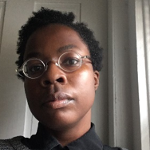 Nathalie Batraville is Postdoctoral Fellow in the Society of Fellows at Dartmouth. Her main objects of inquiry are anticolonialism, Black feminist and queer theory, and cultural formations of the Black Atlantic. Since completing her PhD in French at Yale University in May 2016, she has been working on a monograph that conceptualizes liberation beyond independence by rethinking postcolonial state power in Haiti. Using literature and archival research from the Duvalier dictatorship, she argues that reconfiguring relations of power and subjection requires acknowledging and addressing the mutilation of Black women’s flesh as a structuring logic of biopolitical regimes. Batraville’s scholarship has appeared in The CLR James Journal (Special issue: Black Canadian Thought) and Francophone Postcolonial Studies, and is forthcoming in Small Axe and Tangence.
Nathalie Batraville is Postdoctoral Fellow in the Society of Fellows at Dartmouth. Her main objects of inquiry are anticolonialism, Black feminist and queer theory, and cultural formations of the Black Atlantic. Since completing her PhD in French at Yale University in May 2016, she has been working on a monograph that conceptualizes liberation beyond independence by rethinking postcolonial state power in Haiti. Using literature and archival research from the Duvalier dictatorship, she argues that reconfiguring relations of power and subjection requires acknowledging and addressing the mutilation of Black women’s flesh as a structuring logic of biopolitical regimes. Batraville’s scholarship has appeared in The CLR James Journal (Special issue: Black Canadian Thought) and Francophone Postcolonial Studies, and is forthcoming in Small Axe and Tangence.
 Jeffrey K. Coleman specializes in contemporary Peninsular Spanish and Catalan theater. He graduated from Dartmouth in 2008 with a major in Spanish (writing an honor thesis under the direction of Professor Israel Reyes) and a minor in Chinese; he was also a Mellon Mays Undergraduate Fellow. He obtained his PhD in Romance Languages & Literatures from the University of Chicago in 2014, where his research focused on theatrical portrayals of the immigration question in the years surrounding the 2004 Spanish national election. He has published several articles on immigration, race, and national identity in the Spanish context in the Journal of Catalan Studies, Symposium, Estreno, and other venues. In addition, in 2015 he was awarded the Duke University Summer Institute on Tenure and Professional Advancement Fellowship and in 2017 was awarded the Woodrow Wilson Career Enhancement Fellowship, sponsored by the Andrew W. Mellon Foundation. His current research project is a book entitled Shockwaves: Immigration and its Racial Reverberations on the Contemporary Spanish Stage (forthcoming from Northwestern University Press), which explores how the intersections of race and immigration manifest in Spanish theatre from 1992 to the present. His next book project will explore the manners by which Blackness is simultaneously consumed and rejected by Spanish popular culture and society.
Jeffrey K. Coleman specializes in contemporary Peninsular Spanish and Catalan theater. He graduated from Dartmouth in 2008 with a major in Spanish (writing an honor thesis under the direction of Professor Israel Reyes) and a minor in Chinese; he was also a Mellon Mays Undergraduate Fellow. He obtained his PhD in Romance Languages & Literatures from the University of Chicago in 2014, where his research focused on theatrical portrayals of the immigration question in the years surrounding the 2004 Spanish national election. He has published several articles on immigration, race, and national identity in the Spanish context in the Journal of Catalan Studies, Symposium, Estreno, and other venues. In addition, in 2015 he was awarded the Duke University Summer Institute on Tenure and Professional Advancement Fellowship and in 2017 was awarded the Woodrow Wilson Career Enhancement Fellowship, sponsored by the Andrew W. Mellon Foundation. His current research project is a book entitled Shockwaves: Immigration and its Racial Reverberations on the Contemporary Spanish Stage (forthcoming from Northwestern University Press), which explores how the intersections of race and immigration manifest in Spanish theatre from 1992 to the present. His next book project will explore the manners by which Blackness is simultaneously consumed and rejected by Spanish popular culture and society.
 Rokhaya Diallo is a French journalist, writer, and award-winning filmmaker, widely recognized for her work which dismantles the barricades of racism and sexism through the promotion of equality and pluralism. TV host and pundit on several French and international networks, Diallo is also a contributor to several newspapers and magazines. She has directed several documentaries including the award-winning Steps To Liberty. She co-founded the Indivisibles, which recognizes through the “Y’a bon Awards” ceremony the “best” racist statements made by French public figures each year. She is the author of several books, including a graphic novel. She has curated an exhibition in Paris inspired by her book, entitled Afro!, which she co-authored with the photographer Brigitte Sombié. She has been the recipient of several awards including the Women in Digital Communication Award from #LabcomWomen in the Generosity category created by the French channel TF1, whereby homage was paid to her work in the Journalist of the Year category in 2016. In 2017 she was the only French person invited to attend the inauguration of the Obama Foundation.
Rokhaya Diallo is a French journalist, writer, and award-winning filmmaker, widely recognized for her work which dismantles the barricades of racism and sexism through the promotion of equality and pluralism. TV host and pundit on several French and international networks, Diallo is also a contributor to several newspapers and magazines. She has directed several documentaries including the award-winning Steps To Liberty. She co-founded the Indivisibles, which recognizes through the “Y’a bon Awards” ceremony the “best” racist statements made by French public figures each year. She is the author of several books, including a graphic novel. She has curated an exhibition in Paris inspired by her book, entitled Afro!, which she co-authored with the photographer Brigitte Sombié. She has been the recipient of several awards including the Women in Digital Communication Award from #LabcomWomen in the Generosity category created by the French channel TF1, whereby homage was paid to her work in the Journalist of the Year category in 2016. In 2017 she was the only French person invited to attend the inauguration of the Obama Foundation.
 Manthia Diawara was born in Mali, West Africa. He is a distinguished Professor of Comparative Literature and Film at New York University. Diawara was educated in Conakry, Guinea, Bamako, Mali, and Paris, France, before migrating to the United States to pursue his studies. A prolific writer and filmmaker, his essays on art, cinema, and politics have appeared in The New Times Magazine, the LA Times, Libération, Mediapart, and Artforum. He is the author of two acclaimed memoirs: In Search of Africa (Harvard University Press, 2000) and We Won’t Budge: An African Exile in the World (Basic Books, 2008). He has published several books on African and African American cinema. Diawara’s notable films include: An Opera of the World (2017), Négritude: A Dialogue between Wole Soyinka and Senghor (2015), Édouard Glissant: One World in Relation (2010), Maison Tropicale (2008), and Rouch in Reverse (1995).
Manthia Diawara was born in Mali, West Africa. He is a distinguished Professor of Comparative Literature and Film at New York University. Diawara was educated in Conakry, Guinea, Bamako, Mali, and Paris, France, before migrating to the United States to pursue his studies. A prolific writer and filmmaker, his essays on art, cinema, and politics have appeared in The New Times Magazine, the LA Times, Libération, Mediapart, and Artforum. He is the author of two acclaimed memoirs: In Search of Africa (Harvard University Press, 2000) and We Won’t Budge: An African Exile in the World (Basic Books, 2008). He has published several books on African and African American cinema. Diawara’s notable films include: An Opera of the World (2017), Négritude: A Dialogue between Wole Soyinka and Senghor (2015), Édouard Glissant: One World in Relation (2010), Maison Tropicale (2008), and Rouch in Reverse (1995).
 Tabetha Leigh Ewing, Associate Professor of History and Chair of the Division of Social Studies at Bard College, and former Dean of Studies, Bard High School Early College, is author of Rumor, Diplomacy and War in Enlightenment Paris (Oxford University Studies in the Enlightenment, 2014). She serves as co-chair of Columbia University Seminar “Beyond France.” She is a Fellow at the New York Institute for the Humanities. Her teaching and research interests are in the socio-cultural and socio-political history of 18th-century France, early-modern media, early-modern city, the café, early-modern women and gender, old-regime borders, old-regime police, francophone black diasporic thought, and négritude. Her current work-in-progress, titled “Rights Over Persons: France and Extradition in the Age of Kings,” is on runaway wives, clandestine marrieds, fugitive slaves, dissident writers, counterfeiters, identity thieves, and spies. It explores the confluence of emergent state and individual sovereignty and international policing before the era of modern extradition treaties and national borders. Using diplomatic correspondence and the supplication letters of the detainees, the book will show political subjectivity unfolding, not only in the world of ideas or revolutionary events or among a special class of subject, but also in the confrontation of states around often marginal subjects who transgress and, in doing so, invent political boundaries.
Tabetha Leigh Ewing, Associate Professor of History and Chair of the Division of Social Studies at Bard College, and former Dean of Studies, Bard High School Early College, is author of Rumor, Diplomacy and War in Enlightenment Paris (Oxford University Studies in the Enlightenment, 2014). She serves as co-chair of Columbia University Seminar “Beyond France.” She is a Fellow at the New York Institute for the Humanities. Her teaching and research interests are in the socio-cultural and socio-political history of 18th-century France, early-modern media, early-modern city, the café, early-modern women and gender, old-regime borders, old-regime police, francophone black diasporic thought, and négritude. Her current work-in-progress, titled “Rights Over Persons: France and Extradition in the Age of Kings,” is on runaway wives, clandestine marrieds, fugitive slaves, dissident writers, counterfeiters, identity thieves, and spies. It explores the confluence of emergent state and individual sovereignty and international policing before the era of modern extradition treaties and national borders. Using diplomatic correspondence and the supplication letters of the detainees, the book will show political subjectivity unfolding, not only in the world of ideas or revolutionary events or among a special class of subject, but also in the confrontation of states around often marginal subjects who transgress and, in doing so, invent political boundaries.
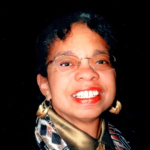 Bennetta Jules-Rosette is Distinguished Professor of Sociology and the Director of the African and African-American Studies Research Center at the University of California, San Diego. Her work addresses contemporary African art and literature, semiotic studies of Black Paris, popular culture, religious discourse, and new technologies in Africa. She has conducted research in France, Congo (DRC), Zambia, Kenya, Côte d’Ivoire, and Sénégal, and has also published eight books and over one hundred articles. Her two latest books, Black Paris: The African Writers’ Landscape (1998) and Josephine Baker in Art and Life: The Icon and the Image (2007), were published by the University of Illinois Press. Her forthcoming book, also from the University of Illinois Press, is entitled African Art Reframed: Reflections and Dialogues on Museum Culture (scheduled for 2018).
Bennetta Jules-Rosette is Distinguished Professor of Sociology and the Director of the African and African-American Studies Research Center at the University of California, San Diego. Her work addresses contemporary African art and literature, semiotic studies of Black Paris, popular culture, religious discourse, and new technologies in Africa. She has conducted research in France, Congo (DRC), Zambia, Kenya, Côte d’Ivoire, and Sénégal, and has also published eight books and over one hundred articles. Her two latest books, Black Paris: The African Writers’ Landscape (1998) and Josephine Baker in Art and Life: The Icon and the Image (2007), were published by the University of Illinois Press. Her forthcoming book, also from the University of Illinois Press, is entitled African Art Reframed: Reflections and Dialogues on Museum Culture (scheduled for 2018).
 Fred Kuwornu is an Italian-Ghanaian filmmaker and activist best known for his documentaries Inside Buffalo (2010), about the Black American soldiers who participated in the liberation of Italy during World War II, and 18 Ius Soli (2012), about the children of immigrants in Italy and their struggles for legal and social recognition. This summer he has begun screening his latest film project, Blaxploitalian: One Hundred Years of Blackness in Italian Cinema (2016; supported by a grant from the Lettera27 foundation). A sweeping documentary inspired by Leonardo De Franceschi’s seminal collection L’Africa in Italia as well as Kuwornu’s own experiences in the Italian film industry, Blaxploitalian recounts the century-long yet underappreciated history of people of African descent in Italian cinema. Like Kuwornu’s previous projects, this documentary has an explicit social mission. He is using Blaxploitalian to connect with an international network of activists with the ultimate goal of developing a platform to support advocacy for greater diversity in media.
Fred Kuwornu is an Italian-Ghanaian filmmaker and activist best known for his documentaries Inside Buffalo (2010), about the Black American soldiers who participated in the liberation of Italy during World War II, and 18 Ius Soli (2012), about the children of immigrants in Italy and their struggles for legal and social recognition. This summer he has begun screening his latest film project, Blaxploitalian: One Hundred Years of Blackness in Italian Cinema (2016; supported by a grant from the Lettera27 foundation). A sweeping documentary inspired by Leonardo De Franceschi’s seminal collection L’Africa in Italia as well as Kuwornu’s own experiences in the Italian film industry, Blaxploitalian recounts the century-long yet underappreciated history of people of African descent in Italian cinema. Like Kuwornu’s previous projects, this documentary has an explicit social mission. He is using Blaxploitalian to connect with an international network of activists with the ultimate goal of developing a platform to support advocacy for greater diversity in media.
 Priscilla Layne is Associate Professor of German at the University of North Carolina at Chapel Hill. She received her PhD from the University of California, Berkeley, in 2011. Her publications address such topics as representations of blackness in German film, postwar rebellion, and Turkish German culture. She has published essays in the journals German Studies Review, Colloquia Germanica, and Women in German Yearbook and presented at conferences, such as those held by the German Studies Association, the Society for Film and Media Studies, and the Collegium for African American Research. She is author of White Rebels in Black: German Appropriation of African American Culture (forthcoming from the University of Michigan Press).
Priscilla Layne is Associate Professor of German at the University of North Carolina at Chapel Hill. She received her PhD from the University of California, Berkeley, in 2011. Her publications address such topics as representations of blackness in German film, postwar rebellion, and Turkish German culture. She has published essays in the journals German Studies Review, Colloquia Germanica, and Women in German Yearbook and presented at conferences, such as those held by the German Studies Association, the Society for Film and Media Studies, and the Collegium for African American Research. She is author of White Rebels in Black: German Appropriation of African American Culture (forthcoming from the University of Michigan Press).
 Christopher L. Miller is the Frederick Clifford Ford Professor of African American Studies and French at Yale University. His new book, Impostors: Literary Hoaxes and Cultural Authenticity, will be published by the University of Chicago Press in the fall. He is the author of four previous books: Blank Darkness: Africanist Discourse in French; Theories of Africans: Francophone Literature and Anthropology in Africa; Nationalists and Nomads: Essays on Francophone African Literature and Culture; and The French Atlantic Triangle: Literature and Culture of the Slave Trade.
Christopher L. Miller is the Frederick Clifford Ford Professor of African American Studies and French at Yale University. His new book, Impostors: Literary Hoaxes and Cultural Authenticity, will be published by the University of Chicago Press in the fall. He is the author of four previous books: Blank Darkness: Africanist Discourse in French; Theories of Africans: Francophone Literature and Anthropology in Africa; Nationalists and Nomads: Essays on Francophone African Literature and Culture; and The French Atlantic Triangle: Literature and Culture of the Slave Trade.
 Mame-Fatou Niang is an Assistant Professor of French and Francophone studies at Carnegie Mellon University. Her recent research examines the development of Afro-French identities and the works of second- and third-generation female immigrant writers of the banlieue. Her work has appeared in edited volumes and academic journals, such as Contemporary French Civilization and Présence Francophone. Niang is also a photographer and the co-author of a photo series on Black French Islam. In March 2018, she organized “Blackness, Citizenship and the Arts: A Transatlantic Dialogue”, a one-day symposium with scholars, artists and activists from the US, France, Brazil, Germany, Benin and the Gambia. Dr. Niang is currently working on her second manuscript. Based on her 2016 documentary Mariannes Noires, this book analyzes current trends in the politics and lived experiences of Blackness in metropolitan France.
Mame-Fatou Niang is an Assistant Professor of French and Francophone studies at Carnegie Mellon University. Her recent research examines the development of Afro-French identities and the works of second- and third-generation female immigrant writers of the banlieue. Her work has appeared in edited volumes and academic journals, such as Contemporary French Civilization and Présence Francophone. Niang is also a photographer and the co-author of a photo series on Black French Islam. In March 2018, she organized “Blackness, Citizenship and the Arts: A Transatlantic Dialogue”, a one-day symposium with scholars, artists and activists from the US, France, Brazil, Germany, Benin and the Gambia. Dr. Niang is currently working on her second manuscript. Based on her 2016 documentary Mariannes Noires, this book analyzes current trends in the politics and lived experiences of Blackness in metropolitan France.
 Alexis Peskine, born in Paris in 1979, holds a Bachelor of Fine Arts from Howard University, and a Master of Arts in Digital Arts and a Master of Fine Arts from Maryland Institute College of Art (MICA). He has won a number of prizes including a Fulbright Scholarship. Early in his life, Peskine was exposed to questions of identity: his grandfathers, Boris, a Jewish engineer who survived a concentration camp, and Antonio, an Afro-Brazilian carpenter, raised his family in the inner city of Salvador, Bahia. Peskine’s work is thematically linked to the “Black Experience” and has been featured in many publications, from books to newspapers such as the New York Times, Le Monde, O Correio da Bahia, and Libération. His powerful portraits, literally nailed into wooden planks, pay tribute to the many individuals undertaking the dangerous boat journeys from North Africa to Europe. Using several sizes of nails, he uses the nail as brushstroke. He drives in the nails at different depths to create a sense of relief and to introduce a third dimension. The nail for Peskine represents transcendence; it expresses pain as well as the force of resistance. Peskine’s works have been exhibited in the United States (New York, Washington, Baltimore, Detroit, Chicago, Hartford, Minneapolis), Europe (Paris, Luxembourg), Africa (Dakar, Johannesburg, Durban, Cape Town, Casablanca, Addis Ababa), South America (Salvador, Bahia, Brazil), and the Caribbean (Kingston). He has participated in many renowned international exhibits including the third Black Arts World Festival in Dakar, Addis Foto Fest, Pulse New York, Casablanca and Dakar’s Biennales, and Miami Art Basel’s Prize exhibit.
Alexis Peskine, born in Paris in 1979, holds a Bachelor of Fine Arts from Howard University, and a Master of Arts in Digital Arts and a Master of Fine Arts from Maryland Institute College of Art (MICA). He has won a number of prizes including a Fulbright Scholarship. Early in his life, Peskine was exposed to questions of identity: his grandfathers, Boris, a Jewish engineer who survived a concentration camp, and Antonio, an Afro-Brazilian carpenter, raised his family in the inner city of Salvador, Bahia. Peskine’s work is thematically linked to the “Black Experience” and has been featured in many publications, from books to newspapers such as the New York Times, Le Monde, O Correio da Bahia, and Libération. His powerful portraits, literally nailed into wooden planks, pay tribute to the many individuals undertaking the dangerous boat journeys from North Africa to Europe. Using several sizes of nails, he uses the nail as brushstroke. He drives in the nails at different depths to create a sense of relief and to introduce a third dimension. The nail for Peskine represents transcendence; it expresses pain as well as the force of resistance. Peskine’s works have been exhibited in the United States (New York, Washington, Baltimore, Detroit, Chicago, Hartford, Minneapolis), Europe (Paris, Luxembourg), Africa (Dakar, Johannesburg, Durban, Cape Town, Casablanca, Addis Ababa), South America (Salvador, Bahia, Brazil), and the Caribbean (Kingston). He has participated in many renowned international exhibits including the third Black Arts World Festival in Dakar, Addis Foto Fest, Pulse New York, Casablanca and Dakar’s Biennales, and Miami Art Basel’s Prize exhibit.
 Cassie Quarless is a producer and director with a background in comedy and documentary shorts, having produced short-form content for The Wagon, FutureLearn, and University College London, amongst other venues. He studied Digital Anthropology at University College London and has a strong interest in the imagining of and potential for radical futures.
Cassie Quarless is a producer and director with a background in comedy and documentary shorts, having produced short-form content for The Wagon, FutureLearn, and University College London, amongst other venues. He studied Digital Anthropology at University College London and has a strong interest in the imagining of and potential for radical futures.
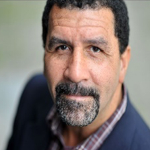 Stephen Small is a Professor in the Department of African American Studies at the University of California, Berkeley, where he has taught since 1994. He earned his BA (honors) in Economics and Sociology from the University of Kent at Canterbury, his MSc in Social Sciences from the University of Bristol (both in the UK), and his PhD in Sociology from the University of California, Berkeley. He previously taught at the University of Massachusetts, Amherst, the University of Warwick, and the University of Leicester. He was Study Center Director of the University of California’s Education Abroad Program in Spain, 2013–2015; Study Center Director in France, 2002–2004; and Director of University of California, Berkeley’s travel study program in Brazil (Salvador and Rio de Janeiro), 2001–2005. He was Visiting Professor at the University of Amsterdam, 2010–2015. He is a current faculty member of the Black Europe Summer School in Amsterdam and the Decolonizing Knowledge and Power Institute in Barcelona. His research and teaching focus on knowledge production, public history, and collective memory of slavery and its legacies in the African Diaspora, with a particular focus on the United States, England, and the Netherlands. He is the author of Living History: The Legacy of Slavery in the Netherlands (2012); co-author of Global Mixed Race (2014); and co-author of Black Europe and the African Diaspora (2009). His next book is tentatively entitled “Inside the Shadows of the Big House: 21st Century Antebellum Slave Cabins and Heritage Tourism in Louisiana” (to be published in 2019).
Stephen Small is a Professor in the Department of African American Studies at the University of California, Berkeley, where he has taught since 1994. He earned his BA (honors) in Economics and Sociology from the University of Kent at Canterbury, his MSc in Social Sciences from the University of Bristol (both in the UK), and his PhD in Sociology from the University of California, Berkeley. He previously taught at the University of Massachusetts, Amherst, the University of Warwick, and the University of Leicester. He was Study Center Director of the University of California’s Education Abroad Program in Spain, 2013–2015; Study Center Director in France, 2002–2004; and Director of University of California, Berkeley’s travel study program in Brazil (Salvador and Rio de Janeiro), 2001–2005. He was Visiting Professor at the University of Amsterdam, 2010–2015. He is a current faculty member of the Black Europe Summer School in Amsterdam and the Decolonizing Knowledge and Power Institute in Barcelona. His research and teaching focus on knowledge production, public history, and collective memory of slavery and its legacies in the African Diaspora, with a particular focus on the United States, England, and the Netherlands. He is the author of Living History: The Legacy of Slavery in the Netherlands (2012); co-author of Global Mixed Race (2014); and co-author of Black Europe and the African Diaspora (2009). His next book is tentatively entitled “Inside the Shadows of the Big House: 21st Century Antebellum Slave Cabins and Heritage Tourism in Louisiana” (to be published in 2019).
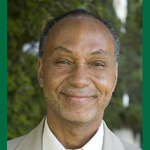 Tyler Stovall is Distinguished Professor of History at the University of California, Santa Cruz, where he is also Dean of the Humanities Division. He has also taught at the Ohio State University and the University of California, Berkeley. He recently finished a term as President of the American Historical Association. He specializes in the history of modern and twentieth-century France. Stovall has written and edited several books on the subject, including Paris Noir: African Americans in the City of Light (1996), and Transnational France: The Modern History of a Universal Nation (2015). He is currently writing a global history of the relationship between freedom and race, titled White Freedom: The Racial History of an Idea (forthcoming from Princeton University Press).
Tyler Stovall is Distinguished Professor of History at the University of California, Santa Cruz, where he is also Dean of the Humanities Division. He has also taught at the Ohio State University and the University of California, Berkeley. He recently finished a term as President of the American Historical Association. He specializes in the history of modern and twentieth-century France. Stovall has written and edited several books on the subject, including Paris Noir: African Americans in the City of Light (1996), and Transnational France: The Modern History of a Universal Nation (2015). He is currently writing a global history of the relationship between freedom and race, titled White Freedom: The Racial History of an Idea (forthcoming from Princeton University Press).
 James H. Sweet is Vilas-Jartz Distinguished Professor of History and Chair of the Department of Spanish and Portuguese at the University of Wisconsin. He is the author of two prize-winning books, Recreating Africa: Culture, Kinship, and Religion in the African-Portuguese World, 1441-1770 (2003) and Domingos Álvares, African Healing, and the Intellectual History of the Atlantic World (2011). Sweet is also the author of more than twenty journal and book articles, as well as a co-edited volume (with Tejumola Olaniyan) entitled, The African Diaspora and the Disciplines (2010). He currently serves as an elected Councilor on the Research Division of the American Historical Association. He also sits on editorial boards of two scholarly journals and a book series at the University of Wisconsin Press. Sweet has worked as a consultant for the National Geographic Society, PBS, the Schomburg Center for Research in Black Culture, the Mapungubwe Institute, and the Black Economic Empowerment Commission of South Africa.
James H. Sweet is Vilas-Jartz Distinguished Professor of History and Chair of the Department of Spanish and Portuguese at the University of Wisconsin. He is the author of two prize-winning books, Recreating Africa: Culture, Kinship, and Religion in the African-Portuguese World, 1441-1770 (2003) and Domingos Álvares, African Healing, and the Intellectual History of the Atlantic World (2011). Sweet is also the author of more than twenty journal and book articles, as well as a co-edited volume (with Tejumola Olaniyan) entitled, The African Diaspora and the Disciplines (2010). He currently serves as an elected Councilor on the Research Division of the American Historical Association. He also sits on editorial boards of two scholarly journals and a book series at the University of Wisconsin Press. Sweet has worked as a consultant for the National Geographic Society, PBS, the Schomburg Center for Research in Black Culture, the Mapungubwe Institute, and the Black Economic Empowerment Commission of South Africa.
 Dominic Thomas is Madeleine L. Letessier Professor and Chair of the Departments of French and Francophone Studies, Germanic Languages, and Italian at the University of California, Los Angeles; CNN European Affairs Commentator; and the author or co-editor of numerous books, including Black France (2007), La France noire (2011), Africa and France (2013), Colonial Culture in France since the Revolution (2014), The Invention of Race (2014), Francophone Afropean Literatures (2014), Vers la guerre des identités (2016), The Colonial Legacy in France (2017), and Sexe et colonies (forthcoming, September 2018). He has translated into English works by Aimé Césaire, Emmanuel Dongala, Alain Mabanckou, Sony Labou Tansi, and Abdourahman Waberi, and is the editor-in-chief of the Global African Voices series published by Indiana University Press.
Dominic Thomas is Madeleine L. Letessier Professor and Chair of the Departments of French and Francophone Studies, Germanic Languages, and Italian at the University of California, Los Angeles; CNN European Affairs Commentator; and the author or co-editor of numerous books, including Black France (2007), La France noire (2011), Africa and France (2013), Colonial Culture in France since the Revolution (2014), The Invention of Race (2014), Francophone Afropean Literatures (2014), Vers la guerre des identités (2016), The Colonial Legacy in France (2017), and Sexe et colonies (forthcoming, September 2018). He has translated into English works by Aimé Césaire, Emmanuel Dongala, Alain Mabanckou, Sony Labou Tansi, and Abdourahman Waberi, and is the editor-in-chief of the Global African Voices series published by Indiana University Press.
 Louis-Georges Tin, born in Martinique, lives in Paris, and is an Associate Professor at the University of Orléans. He is the author of The Invention of Heterosexual Culture (MIT Press, 2012); the editor of The Dictionary of Homophobia: A Global History of Gay & Lesbian Experience; the founder of the Paris-based IDAHO Committee, which coordinates International Day against Homophobia, Transphobia, and Biphobia; and cofounder and President of the Representative Council of France’s Black Associations (CRAN).
Louis-Georges Tin, born in Martinique, lives in Paris, and is an Associate Professor at the University of Orléans. He is the author of The Invention of Heterosexual Culture (MIT Press, 2012); the editor of The Dictionary of Homophobia: A Global History of Gay & Lesbian Experience; the founder of the Paris-based IDAHO Committee, which coordinates International Day against Homophobia, Transphobia, and Biphobia; and cofounder and President of the Representative Council of France’s Black Associations (CRAN).
 Keith L. Walker is Professor of 19th- and 20th-century French, Francophone, and Caribbean literatures. Walker is the author of Countermodernism and Francophone Literary Culture: The Game of Slipknot (Duke University Press) and La cohésion poétique de l’œuvre césairienne (Editions Jean-Michel Place, Paris). He is the English translator from the French of The Great Camouflage: Writings of Dissent (1941–1945) Suzanne Césaire (Wesleyan University Press) and of ABCésaire, with Euzhan Palcy (M. Milo, Paris), and a contributing editor of Postcolonial Subjects: Francophone Women Writers (University of Minnesota Press). His articles include “Anténor Firmin, Aimé and Suzanne Césaire: In Search of Africa and Ourselves,” L’Esprit Créateur, Johns Hopkins University Press; “Pero Vaz De Caminha: Para Fijar La Mirada En El Corazon De Tinieblas Del Nuevo Mundo,” Revista De Critica Literaria Latinoamericana; and “‘Not to Exist without Interpretation of Meaning’: The Countermodernist Challenge of Sylvia Wynter,” Journal of West Indian Literature (JWIL), Kingston.
Keith L. Walker is Professor of 19th- and 20th-century French, Francophone, and Caribbean literatures. Walker is the author of Countermodernism and Francophone Literary Culture: The Game of Slipknot (Duke University Press) and La cohésion poétique de l’œuvre césairienne (Editions Jean-Michel Place, Paris). He is the English translator from the French of The Great Camouflage: Writings of Dissent (1941–1945) Suzanne Césaire (Wesleyan University Press) and of ABCésaire, with Euzhan Palcy (M. Milo, Paris), and a contributing editor of Postcolonial Subjects: Francophone Women Writers (University of Minnesota Press). His articles include “Anténor Firmin, Aimé and Suzanne Césaire: In Search of Africa and Ourselves,” L’Esprit Créateur, Johns Hopkins University Press; “Pero Vaz De Caminha: Para Fijar La Mirada En El Corazon De Tinieblas Del Nuevo Mundo,” Revista De Critica Literaria Latinoamericana; and “‘Not to Exist without Interpretation of Meaning’: The Countermodernist Challenge of Sylvia Wynter,” Journal of West Indian Literature (JWIL), Kingston.
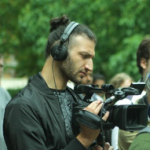 Usayd Younis is a radical filmmaker and digital editor for Ceasefire Magazine. His first documentary, The Two Worlds, addresses the topic of inequality in post-apartheid South Africa. Younis has facilitated workshops on Arts & Activism for Platform / Shake! and has a passion for social justice.
Usayd Younis is a radical filmmaker and digital editor for Ceasefire Magazine. His first documentary, The Two Worlds, addresses the topic of inequality in post-apartheid South Africa. Younis has facilitated workshops on Arts & Activism for Platform / Shake! and has a passion for social justice.